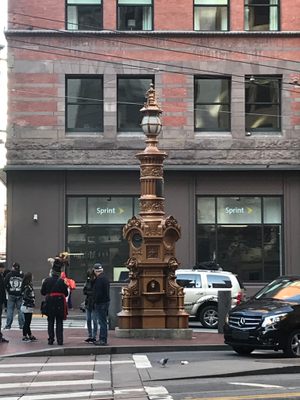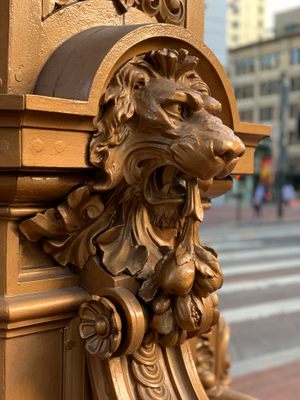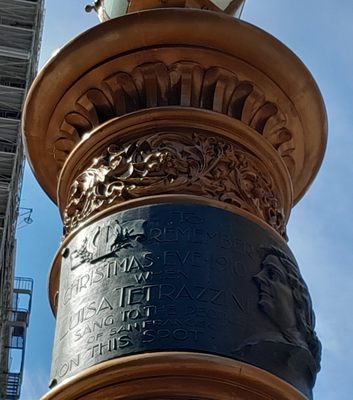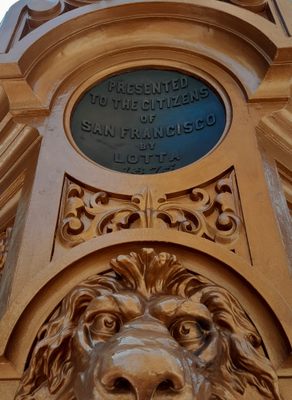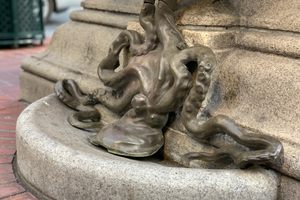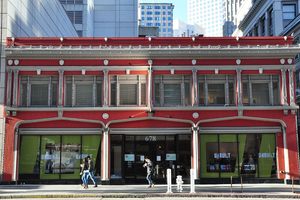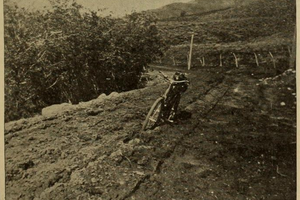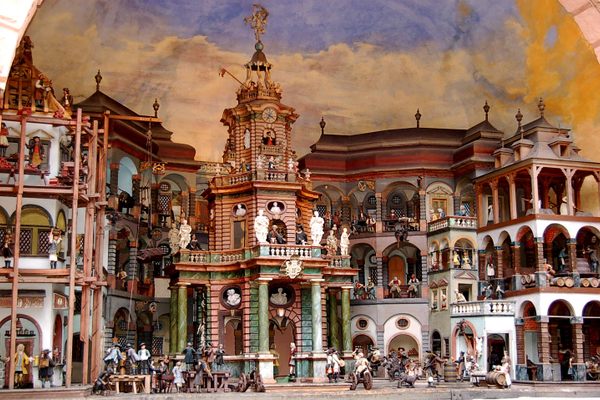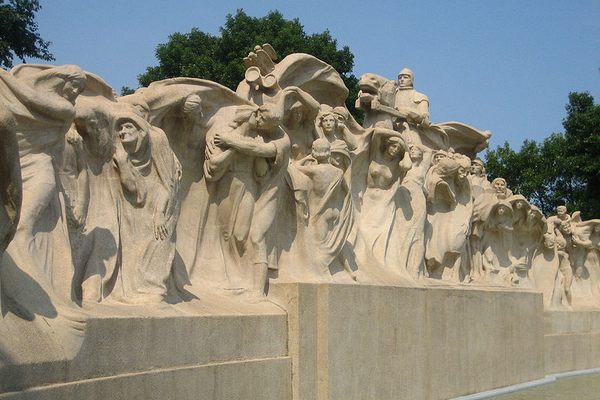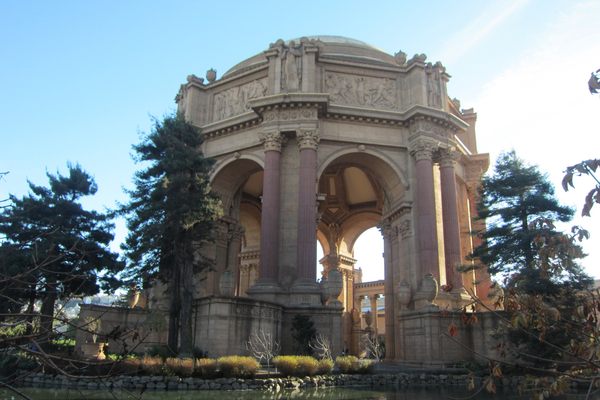About
Standing at the corner of Market, Geary and Kearny streets in San Francisco, Lotta's Fountain is a twenty-four-foot cast iron sculpture, painted bronze and adorned with lion's heads, griffins, and other ornaments.
The fountain has survived earthquakes, fires and attempts to move it to Golden Gate Park, and in the process has become San Francisco's oldest surviving monument.
In many ways, the fountain, which has played a central role in many of the city's greatest events, tells the story of San Francisco itself.
It should tell one something about San Francisco in the 1870s that the monument was given to the city not by a politician or captain of industry, but by a famous Vaudeville performer, Lotta Crabtree. Lotta loved the city and had gotten her start there during the Gold Rush days, when she would dance on barrels in saloons for miners who would throw gold nuggets at her feet. Using some of the gold coin, gold nuggets and gold watches that gentlemen bestowed upon her, Lotta bought the city a fountain in 1875.
After the 1906 earthquake, dazed survivors looked for anything left standing to congregate around. Lotta's Fountain served as a meeting place for people to be reunited with their loved ones. Every year at 5:12 a.m. on April 18th a couple of hundred people, including the remaining survivors of the earthquake (as of 2010 there was one remaining 104-year-old survivor, Bill Del Monte, who was 3 months old a the time of the quake), meet in a ceremony of remembrance. In 1910, famed opera singer Madame Luisa Tetrazzini faced legal struggles that prevented her from singing in New York City and said she had already been booked in San Francisco. As a result, she held a press conference where she declared, "I will sing in San Francisco if I have to sing there in the streets, for I know the streets of San Francisco are free." On Christmas Eve in 1910 Lotta's Fountain was nearly engulfed by a crowd, estimated at 250,000 people, who had gathered to hear the performance. "Although Madame Tetrazzini sang without the aid of a loudspeaker system, her voice was carried 500 miles to Los Angeles over a telephone to members of the Bohemian Club."
Deodato Stiavetti, an immigrant from near Lucca, Italy, sold newspapers at the fountain for years. First for the Call, then the Call-Bulletin. Ultimately, he became a circulation manager for the News-Call Bulletin. CAlled "Dato," he was more familiarly known as "Joe the Fountain."
Since then Lotta's Fountain has served host to several historic events in San Francisco including performances by Jan Kubelik, the world's foremost violinist of his time, as well as Misha Elman, and a recreation of Madame Tetrazzini's performance in 1960. The fountain was completely dismantled in 1998 (the workers found that the metal rings holding it together had become paper-thin and that the fountain was held together by "its own weight") cleaned, refurbished and reassembled.
Today thousands of daily commuters pass it on their way to work, little aware of the role it has played in their city's history.
Related Tags
Community Contributors
Added By
Published
April 18, 2013




